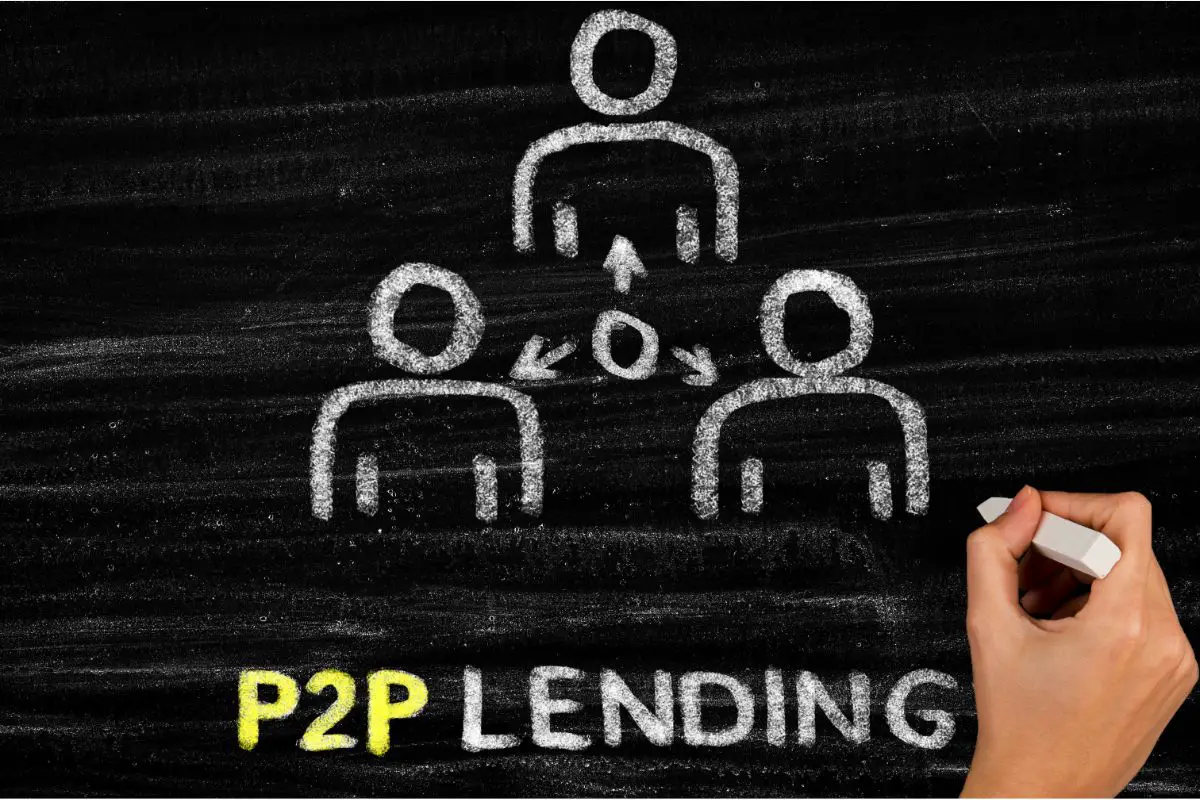Lenme is an innovative lending app, designed to connect borrowers to lenders in a fast, easy and effective manner.
The goal is to allow individuals to access loans and financial assistance, regardless of their credit scores and financial obligations and commitments.
![5 Apps Like Lenme \[Awesome Alternatives\]](/images/5-apps-like-lenme-awesome-alternatives.jpg)
We took a closer look at P2P lending in general, as well as the details of Lenme in particular, and the popular alternatives that customers are turning to.
Peer-to-peer (p2p) lending is a form of borrowing in which individuals lend money to other people.
Peer-to-peer lending websites allow individuals to search for potential borrowers based on criteria including income, employment status, and credit history.
Borrowers post their request for funding along with their personal profile, and if enough people agree to fund them, the lender transfers the loan funds directly to the borrower’s bank account.
Lenders may be required to perform due diligence before approving a loan. In some cases, peer-to-peer lenders may require personal guarantees from borrowers.
These types of loans are not regulated by the government; therefore, borrowers should only use these services to supplement short-term financing, not replace long-term debt like mortgages.
Lenders post loan requests on peer-to-peer websites. Individuals searching for loans can view the posted requests and decide whether or not to fund them.
Once a lender decides to fund a loan, he or she submits it to the peer-to-peer network, and the loan request is distributed to individual investors throughout the network.
Investors assess each loan request using pre-set filters that match the investor’s risk tolerance with the requested loan amount.
If the investor agrees to fund the loan request, the peer-to-personal lender receives payment from the investor.
Individuals who are interested in peer-to-peer investing must first sign up through a peer-to-peer lender and establish an investment account.
They then submit loan requests to the peer-to-peer lender and wait for investors to fund their loans. When the loan is funded, the peer-to-peer investor deposits the loan proceeds into his or her investment account.

Individuals who have exhausted all traditional avenues of obtaining capital and need additional liquidity often turn to peer-to-peer loans as a source of alternative funding.
This includes college students, recent graduates, entrepreneurs, homeowners, small business owners, and others looking to obtain quick cash.
Some peer-to-peer sites also cater to businesses looking to expand their operations. For example, a restaurant owner might seek out a peer-to-peer lender to help pay off high-interest credit cards used to finance inventory purchases.
Pros
Cons
When choosing a peer-to-peel service, consider the following factors:
Are you seeking a short-term or long-term loan? Short-term loans typically range between $1,000 and $5 while long-term loans tend to be larger, ranging from $25,000 to $100,000.
Different companies will offer different loans and options, so do your research here.
The interest rate on a peer-to-peer loan varies depending on the type of loan requested.
Some peer-to-peer lenders offer fixed interest rates, while others allow borrowers to choose from different interest rates based on the length of time they plan to borrow.
Most peer-to-peer lenders charge an origination fee when applying for a loan. These fees vary widely, but can start at around $50 and in some cases, can be very high.
Be aware that some lenders may charge more than one fee, such as an application fee and a processing fee.
Most peer-to-peer websites charge a processing fee when you apply for a loan. The amount of this fee depends on the size of the loan and how quickly it needs to be processed.
What repayment terms does the lender offer? Do they offer flexible repayment options, such as monthly repayments or biweekly repayments? If you need to take longer to repay the loan, what are the penalties?

Lenme has been around for over a number of years now and remains one of the most popular apps on the Google Play Store. It offers several features that are not available anywhere else, including:
Despite its popularity, however, some users have expressed concerns and issues with Lenme, such as the inability to withdraw money from your account without verification, high-interest rates, and poor customer service.
These concerns have resulted in a number of people turning to consider alternatives to Lenme, and we took a look at some of the most popular options on the market for your consideration.
So, without further ado, read on to discover some of the best alternatives to Lenme - read on for all you need to know!
One of the most popular alternatives to Lenme is Brigit - which boasts over 3 million users - and this offers loans of up to $250, which can be accessed instantly by borrowers.
In addition to a lending facility, the Brigit app also allows borrowers to monitor their spending, reducing the risk of overspending and allowing you to use the expense categories to track and monitor your finances.
Brigit is a great option for those with poor credit scores, as there is no minimum credit score requirement, but it does incur a fee of $9.99 per month.
According to experts on the site, however, the app could save you up to $514 per year with budgeting and expense tracking tools.
MoneyLion is another popular alternative to Lenme, boasting more than 1.5 million downloads since its launch in 2017, and offers something a little unique to other so-called payday lenders, operating as a full banking app, rather than simply a cash advance app.
This means that you can manage your bank accounts through the MoneyLion app, and make payments directly into your savings or checking accounts.
Loans of between $25 and $250 are available and tend to take between 3 and 5 business days to reach an external checking account, with a shorter time of between 12 and 48 hours to reach a RoarMoney account.
MoneyLion is a great option for those who want to avoid the hassle of traditional payday loans and instead opt for a more convenient way of accessing funds.
Cash App is yet another popular choice for those looking to borrow money online, offering loans of between $20 and $200.
You can apply for a loan via the Cash App website, and once approved, you will receive your funds within 1-3 business days, and with fees of 0.5% -1.75% fee.
Cash App is a great option for anyone who wants to access fast cash, and doesn’t mind paying higher interest rates than other providers.
The average APR on the platform is currently 60%, and this is something to watch out for, as taking longer to repay your loan could put you at a serious financial disadvantage.
Prosper is one of the oldest peer-to-peer lending platforms around, having been founded in 2007.
It’s now owned by Lending Club, and while they don’t offer any direct loans, they do provide a marketplace where members can lend and borrow money.
The maximum loan amount offered is $40,000, and there are a range of loan terms and repayment periods available. Fees range from 15% to 25% of the principal and interest repaid.
Prosper is a good option for those seeking short-term loans and has a very competitive APR compared to many competitors, ranging from 7.95% to 35.99% for first-time borrowers.
Peerform is a newer player in the market, launching back in 2010, and was founded by Wall Street experts looking to widen the availability of low-cost loans.
A credit score of 600 is required, but the platform offers a good range of loan terms and amounts, with available loans from $4000 to $25,000.
Interest rates range from 5.99% to 29.99% - this is a wide variety, so make sure you check the small print of your loan carefully.
If you’re looking for a quick loan, then these five apps should be able to help you find what you need quickly and easily.
However, remember that each loan has its own unique details, so always read the small print before applying for a loan.
If you liked this article, you might enjoy our post on ‘10 Apps Like Depop To Try Out’.

![8 Apps Like Klover [Awesome Alternatives]](/images/8-apps-like-klover-awesome-alternatives.jpg)
